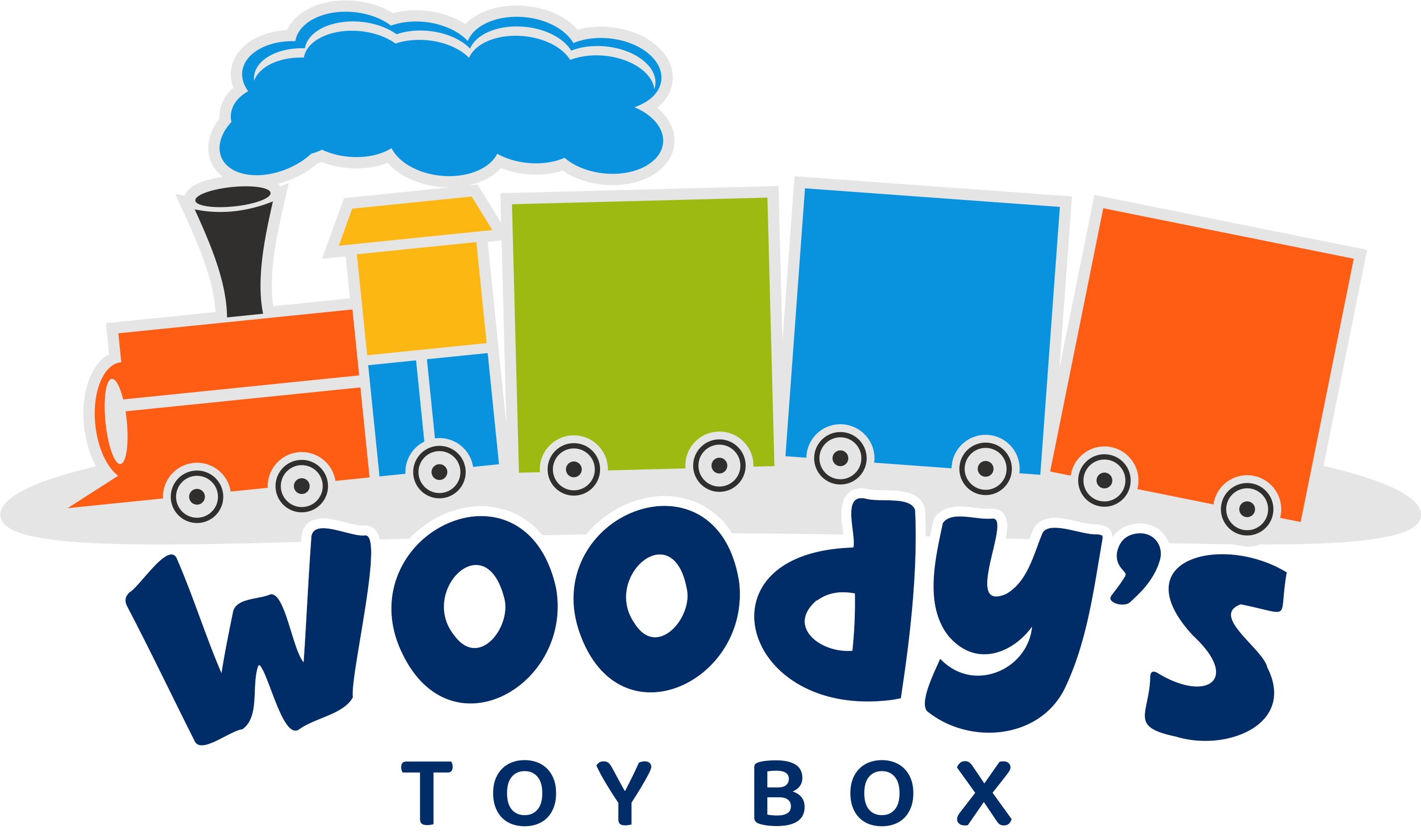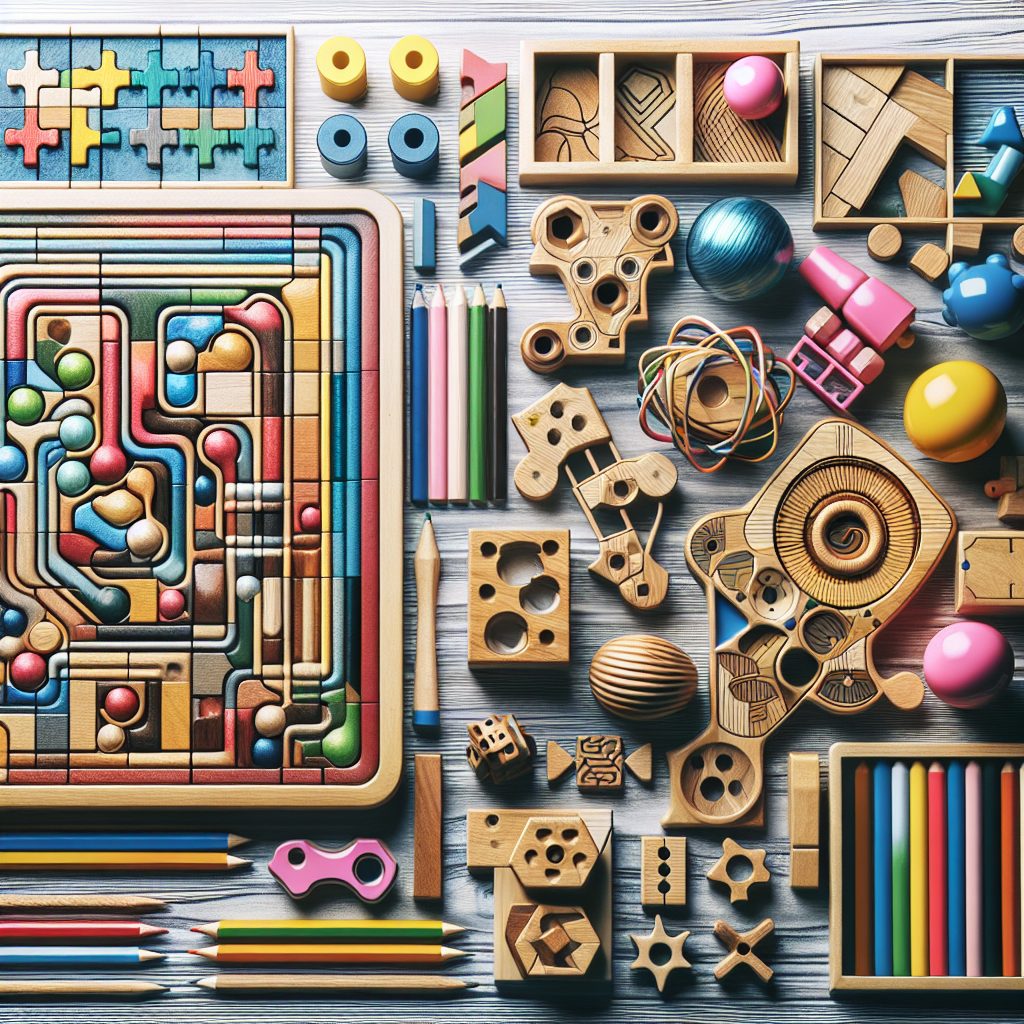Cognitive development plays a crucial role in a child’s overall growth and learning. It refers to the development of thinking, problem-solving, and decision-making skills that are essential for academic success. One effective way to stimulate cognitive development in children is through educational wooden games. These games not only provide entertainment but also offer valuable learning experiences.
Wooden games have unique features that make them ideal for cognitive development. Firstly, they are designed to promote critical thinking and problem-solving skills. By presenting challenges and puzzles, these games encourage children to think creatively and find solutions. Additionally, wooden games often require strategy and planning, helping children develop their decision-making abilities. The tactile nature of wooden toys also enhances sensorimotor skills, as children physically interact with the pieces. Overall, educational wooden games provide a holistic learning experience that supports cognitive growth.
In the next part of this article, we will explore the key takeaways from incorporating wooden games into a child’s educational journey. We will discuss the specific benefits and impacts of these games on cognitive development. Understanding how wooden games stimulate the mind and promote learning will help parents and educators make informed choices about incorporating them into children’s playtime and learning environments. Let us delve deeper into the exciting world of educational wooden games!
Key Takeaways
1. Educational wooden games help in the cognitive development of children by promoting problem-solving skills, fine motor skills, and logical thinking.
2. These games encourage critical thinking and creativity as children engage in hands-on activities and explore different solutions to challenges.
3. The use of wooden materials in educational games provides a natural and sensory learning experience, stimulating the senses of touch and sight.
4. Playing with wooden games allows children to develop their concentration and focus as they work towards achieving a goal or completing a puzzle.
5. Incorporating educational wooden games into the curriculum or home environment can enhance children’s learning experiences and foster their overall cognitive development.
What are the Benefits of Cognitive Development in Children through Educational Wooden Games?
Enhancing Problem-Solving Skills
Wooden games designed for educational purposes play a crucial role in boosting cognitive development in children. These games involve problem-solving activities that encourage kids to analyze situations and think critically. By engaging with wooden games, children are challenged to find solutions, apply logical reasoning, and develop their problem-solving skills. This process not only helps them tackle game-related tasks but also enhances their ability to apply problem-solving techniques in real-life situations.
Promoting Cognitive Skills
Cognitive development in children is greatly enriched through educational wooden games. Such games require kids to utilize their memory, attention, and focus, leading to the development and improvement of various cognitive skills. As they engage with these games, children strengthen their memory retention abilities, enhance their concentration levels, and sharpen their cognitive functions. This not only helps them excel in academic tasks but also enhances their overall cognitive abilities.
Encouraging Creativity and Imagination
Educational wooden games provide an ideal platform for children to unleash their creativity and imagination. These games often involve open-ended play, allowing kids to explore and experiment with different solutions and possibilities. By engaging in imaginative play, children develop their creative thinking skills, learn to think outside the box, and explore alternative perspectives. Wooden games foster a nurturing environment for children to express their unique ideas and thoughts, contributing to their cognitive development.
Improving Fine Motor Skills
Through the manipulation of wooden game pieces, children can improve their fine motor skills. Activities like stacking blocks, fitting puzzle pieces, or maneuvering objects in wooden games require precise hand-eye coordination and controlled movements. By engaging in such activities, children enhance their dexterity, grip strength, and overall fine motor skills. These improvements in motor skills not only help children excel in various physical tasks but also contribute to their cognitive development.
Boosting Social and Emotional Development
Wooden games designed for educational purposes facilitate social interaction and emotional development in children. Many of these games can be played collaboratively, encouraging teamwork, cooperation, and communication among children. By engaging in shared play experiences, children learn essential social skills, such as taking turns, respecting others, and effectively expressing their thoughts and emotions. Moreover, wooden games often provide a safe space for children to understand and regulate their own emotions, fostering emotional intelligence and overall socio-emotional development.
Stimulating Critical Thinking
Educational wooden games challenge children to think critically and make informed decisions. These games often present situations that require logical reasoning, strategizing, and evaluating different options. By engaging with such games, children develop their critical thinking abilities, become skilled at analyzing complex problems, and learn to make sound judgments. The stimulation of critical thinking not only improves their cognitive development but also equips them with essential skills for future academic and real-life challenges.
How to Make the Most of Cognitive Development with Educational Wooden Games?
- Choose age-appropriate wooden games to ensure optimal cognitive development.
- Encourage open-ended play by providing minimal instructions and allowing children to explore freely.
- Create a supportive learning environment where mistakes are seen as opportunities for growth and learning.
- Engage in interactive play with your child to enhance their cognitive development.
- Introduce a variety of wooden games to expose children to diverse cognitive challenges.
- Facilitate discussions and ask questions during gameplay to stimulate critical thinking.
- Provide constructive feedback and praise to motivate and reinforce children’s cognitive development.
- Organize playdates or group game sessions to foster social interaction and teamwork.
- Rotate the selection of wooden games to maintain children’s interest and continuously challenge their cognitive skills.
- Monitor and celebrate your child’s progress in cognitive development through wooden games.
FAQ
1. What is cognitive development?
Cognitive development refers to the growth and enhancement of a child’s thinking, problem-solving, and decision-making skills. It encompasses various processes such as memory, attention, language development, and reasoning.
2. How can wooden games aid in cognitive development?
Wooden games offer educational benefits by stimulating various cognitive abilities in children. They encourage logical thinking, problem-solving, creativity, and fine motor skills development through hands-on activities and interactive play.
3. At what age can children start playing with wooden educational games?
Wooden educational games are suitable for children as young as one year old. They are designed to cater to different age groups, allowing toddlers to explore simple concepts while providing more complex challenges for older children.
4. Are wooden games better than digital alternatives for cognitive development?
Wooden games offer unique advantages over digital alternatives in terms of cognitive development. They promote tactile exploration, physical manipulation, and social interaction, which are crucial for holistic development, unlike digital games that tend to be more passive and isolating.
5. Can wooden games improve problem-solving skills?
Yes, wooden games can significantly improve problem-solving skills by presenting children with tasks that require critical thinking, strategizing, and logical reasoning. These games challenge children to find solutions independently and develop their analytical abilities.
6. What cognitive skills can be enhanced through wooden games?
Wooden games can enhance various cognitive skills, including memory, concentration, attention to detail, spatial reasoning, categorization, and language development. These games provide opportunities to practice and strengthen these skills through engaging and immersive activities.
7. How can parents choose the right wooden games for cognitive development?
When selecting wooden games for cognitive development, parents should consider the child’s age, interests, and developmental stage. Look for games that promote problem-solving, imagination, and creativity. Additionally, games that offer varying levels of difficulty can provide ongoing challenges and growth opportunities.
8. Can wooden games help improve academic performance?
While wooden games specifically focus on cognitive development, they indirectly contribute to improved academic performance. Strengthening cognitive abilities lays a solid foundation for learning, problem-solving, and critical thinking, which are transferable skills applicable to various academic subjects.
9. Can wooden games be beneficial for children with special needs?
Wooden games can be highly beneficial for children with special needs. These games offer sensory integration, fine motor skill development, and opportunities for social interaction. Customized wooden games can be designed to cater to specific needs and challenges faced by children with disabilities.
10. Are wooden games safe for young children?
Wooden games are typically safe for young children. However, it is essential to ensure that the games meet safety standards, have no sharp edges or small parts that can pose choking hazards. Parents should always supervise young children during playtime to ensure their safety.
Final Thoughts on Cognitive Development: Educational Wooden Games for Kids
Educational wooden games play a vital role in promoting cognitive development in children. By engaging in hands-on activities, children can enhance various cognitive skills, including problem-solving, memory, and attention. These games offer a balance between fun and educational benefits, providing children with an enjoyable and enriching learning experience.
Furthermore, wooden games foster social interaction and promote imagination and creativity. The physical manipulation of wooden toys stimulates the senses, making the learning process more engaging and memorable. Introducing educational wooden games at an early age sets the foundation for lifelong learning and cognitive growth, preparing children for future academic and real-life challenges.

